INTERNATIONAL RELATIONS
INTERNATIONAL RELATIONS
Turkey’s association with Islamic State concerns Cyprus too | Turkish Officer’s revelations – Photos
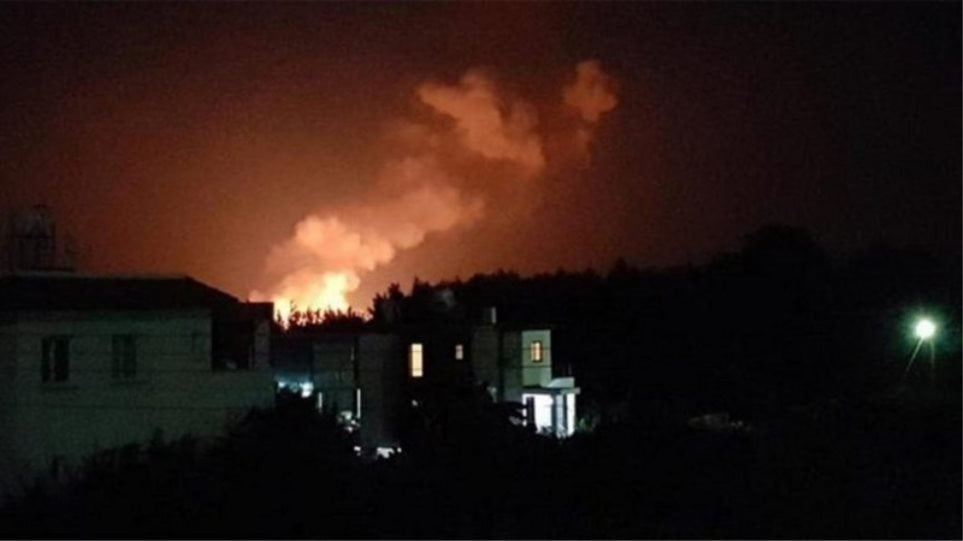
A senior Turkish Officer of the Turkish National Intelligence Organization (MIT) has claimed that occasional explosions at Turkish military weapon depots are staged to “erase” the tracks of the weapons the government of Recep Tayyip Erdogan provides to the Islamic State in Iraq and Syria (ISIS).
According to a detailed report by nordicmonitor, by Turkish journalist Abdullah Bozkurt, who has been exiled from Turkey since 2016 because of an arrest warrant against him for his participation in the Gulen movement, Ahmet Özcan, head of the Assessment Centre (Istihbarat Degerlendirme Merkezi) told the court that the blasts, described as accidents, at Turkish military weapon depots were orchestrated to “fix” the problem of the number of weapons missing from the Turkish Armed Forces (TSK).
“Everyone knows that record keeping is a very sensitive issue for the Turkish Armed Forces and that reports are required to de-register even a small piece of equipment (that is, from the depot). The missing documents were corrected by blowing up ammunition depots in Turkish cities and on the island of Cyprus, resulting in the killing and wounding of dozens of Turkish soldiers,” Ozcan wrote in a statement claimed by Nordic Monitor, attaching a copy in the Turkish language in its publication.
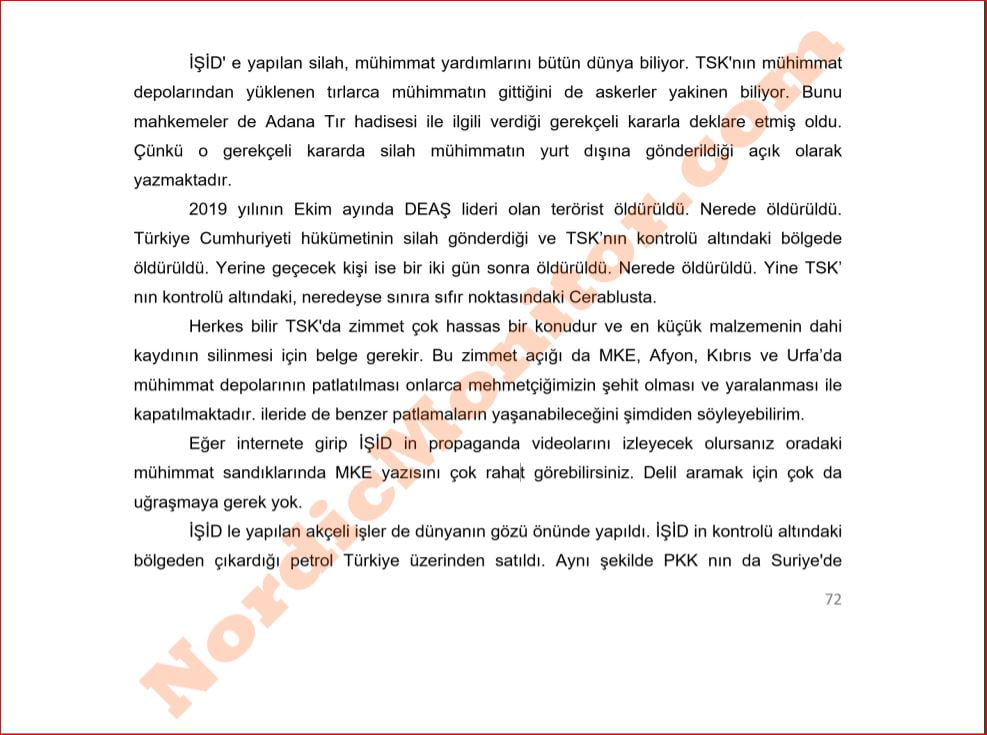
Also read: Syria | New round of hostilities between Kurdish and Syrian fighters backed by Turkey – VIDEO & MAP
“If you go online and watch ISIS propaganda videos, you can easily see the MKE logo (the leading company in the Turkish defence industry) in the ammunition crates. “It would not take much to look for evidence,” he added.
Ozcan referred to a deadly explosion that destroyed an ammunition depot in the western province of Afyonkarahisar and killed 25 soldiers on September 5, 2012. The Turkish military downplayed the explosion and critics argued that if there was proper accountability and a thorough review of military records, the explosion would not have happened.
Another ammunition explosion occurred in the southeastern province of Sanhurfa on November 13, 2019, injuring 16 soldiers. The explosion took place shortly after noon in front of a police recruitment center at Haliliye near the Syrian border. The third explosion that Özcan referred to was the one in the occupied territories of Cyprus, at 01:30 on September 12, 2019, in Kyrenia, an explosion which occurred in the Ammunition Division Command.
As an official at a key intelligence center in the Turkish capital, Ozcan was able to access confidential information. As he worked for the gendarmerie, a law enforcement force in rural areas and border provinces where jihadists used to smuggle weapons, he knew a lot about Erdogan’s government’s secret links to al-Qaeda and ISIS, mainly using the Turkish MIT information service as a conduit.
Also read: Turkish Policy in a few words (Maps)
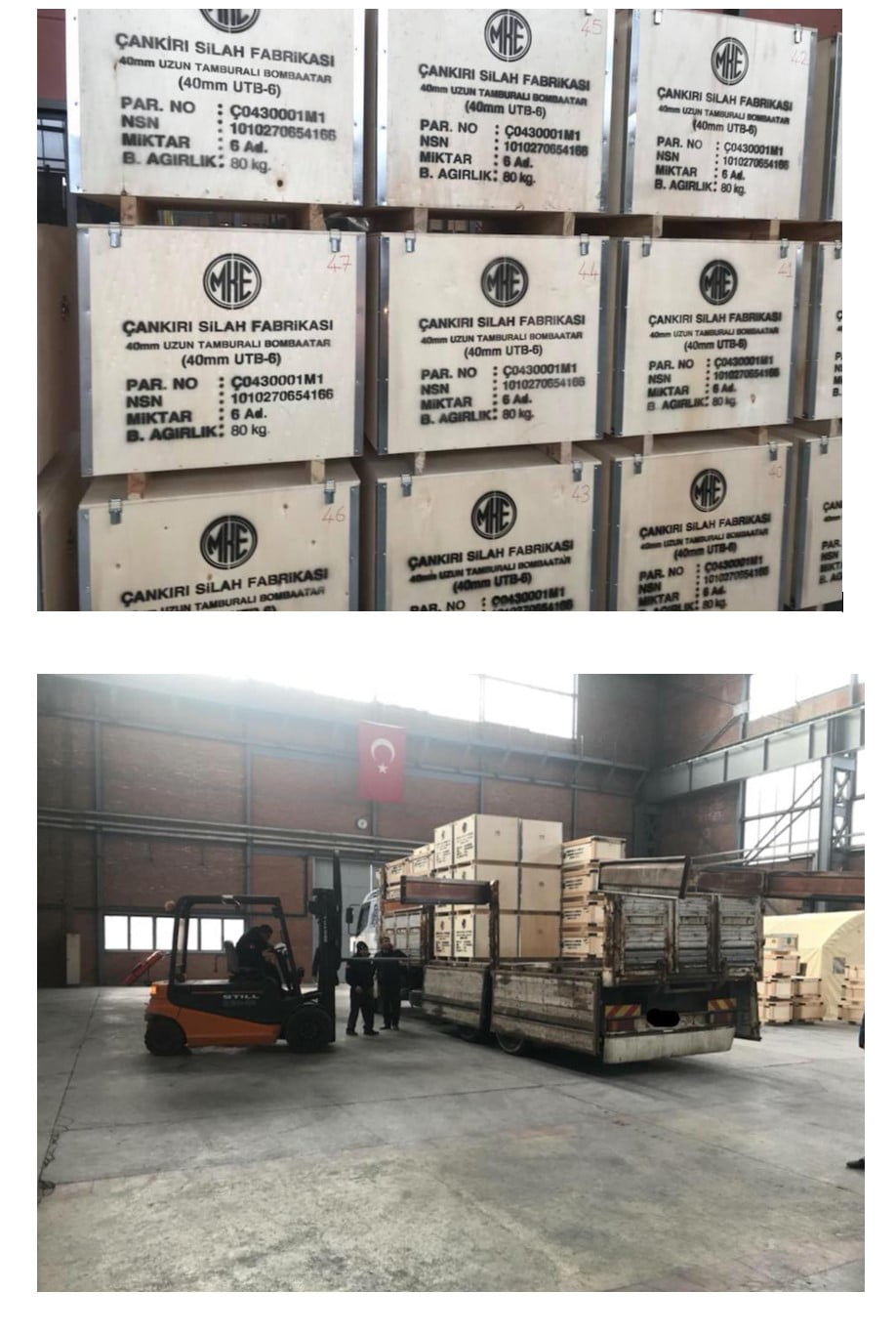
“Turkish soldiers are also well aware that the trucks loaded into the ammunition depots of the Turkish armed forces went to ISIS,” Ozcan said, adding, “I can already say that similar explosions may occur in the future.”
The MKE-manufactured material was confirmed to have been used by ISIS. On September 9, 2014, the Taraf newspaper reported that MKE-marked ammunition was found after a battle between ISIS fighters and Kurdish forces in Erbil, the capital of the Kurdistan Regional Government (KRG) in northern Iraq. According to the report, US experts who examined the scene were surprised to see the MKE signal on ISIS ammunition.
The government shut down the Taraf newspaper in 2016 and jailed its former editor-in-chief, prominent writer Ahmet Altan and the newspaper’s top journalist, Mehmet Barancu, on fabricated charges.
The use of MKE material by ISIS was part of a question that was also submitted to parliament in September 2014. The then Minister of Defence Ismet Yılmaz was asked to confirm or deny whether ISIS had MKE-marked ammunition. “Did the Ministry of Defence sell this ammunition to the organization? If the ministry did not sell it, how did this ammunition get into the hands of ISIS?” MP Lütfü Türkkan asked, adding that he wanted to know if Turkey had received money from the terrorist organization in exchange for ammunition.
In a belated one-sentence response to the six questions, the Defence Minister said that the MKE had never sold ammunition to any terrorist organization.
Also read: Syrian Civil War | The timeline of the bloody conflict
The MKE was also under the spotlight during a criminal investigation in 2013 into a network of al-Qaeda in Turkey, which revealed that terrorists received components to produce Sarin gas (NATO name: GB). The prosecutor’s office conducted a detailed technical surveillance and found that an al-Qaeda militant had acquired components of sarin gas, which is used to make illegal chemical weapons of mass destruction. Thirteen individuals were arrested during the first stage of the investigation, but were later released. The investigation showed that the people who smuggled the chemicals needed to produce sarin gas did not have any difficulties, proving that the National Intelligence Organization (MIT) was aware of their activities.
More than 1,300 people were killed in a sarin gas attack in Ghouta in 2013 and in several other neighboring cities near the Syrian capital Damascus, with the West immediately blaming the regime of Bashar al-Assad and Russia claiming it was a “false flag” operation aimed at the US military intervention in Syria.
In addition, Ozcan also drew attention to the fact that ISIS leader Abu Bakr al-Baghdadi was killed on October 27, 2019 at a location outside the village of Barisha in Syria’s Idlib province, about four miles south of the Turkish border, an area under the control of the Turkish army. He also recalled that Abul-Hasan al-Muhajir, al-Baghdadi’s right-hand man and ISIS spokesman, was also killed by the United States in an airstrike in Ayn al-Bayda near Jarablus in northwestern Syria, also near the border with Turkey and also under the control of the Turkish army.
According to Ozcan, the ISIS mindset was entrenched in Turkey’s state institutions and many of the terrorist attacks attributed to ISIS were in fact organized with the help of some government officials to secure political gains for President Erdogan, especially in 2015, when ruling Justice and Development Party (AKP) lost its majority in parliament in the June elections, only to regain its seats in a snap election on November 1st. Between the two elections, there were three major attacks in the Turkish capital, including the deadliest ISIS terrorist attack in Turkey.
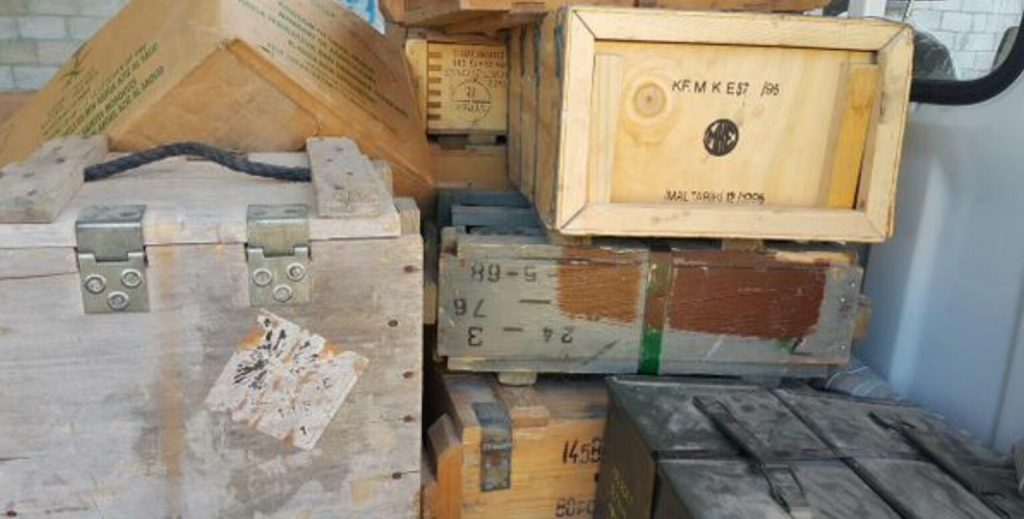
Ozcan, who is now 42 years old, was arrested in Turkey on July 17, 2016 on fabricated charges for participating in the coup, while he was in hospital for surgery. He was wounded in the leg and arm when unknown gunmen opened fire on his headquarters at the General Command of the Gendarmerie in Ankara, following reports of an imminent terrorist attack on military bases and facilities. The unidentified gunmen turned out to be members of a special police force, dressed in civilian clothes, and were ordered to open fire on the base without warning, prompting officers to believe it was indeed a terrorist attack.
Many believe that the failed coup attempt in 2016 was a false flag operation coordinated by President Erdogan to consolidate power, manipulate the opposition, and massively persecute dissident military and political figures. Like thousands of senior army officers, Ozcan was also the victim of this purge and was imprisoned.
He was tortured for several days, denied access to a lawyer, legal counsel and members of his family. He was taken to hospital for emergency surgery after the torture brought him to a critical state of health. The beatings by the police continued even in his hospital bed.
Also read: Walid Muallem | Turkey is a major sponsor of regional terrorism
When he had the opportunity to defend himself in court on December 11, 2017, he explained in detail about the torture and ill-treatment by the police and other security officers during his hospital stay and detention. As an intelligence officer who knew a lot, he also said what he knew about the Erdogan government’s ties to ISIS and other jihadist groups during a hearing on January 31, 2020 at the Supreme Criminal Court.
Source: nordicmonitor.com / Text photos from: nordicmonitor.com / Cover photo from: protothema.gr (Cyprus: Explosions in an ammunition depot in the occupied territories)
NEWSLETTER SUBSCRIPTION
Losses for North Korea in Ukraine | 1,100 soldiers have been killed or wounded
North Korea’s losses in the Russia-Ukraine war are heavy, as more than 1,000 North Korean soldiers have been killed or injured…
Syria | New Minister of Defence Murhaf Abu Kasra
Syria’s new leaders have appointed Murhaf Abu Kasra, a prominent figure among rebels who ousted Bashar al-Assad, as…
Red Sea | A US Fighter Jet was Shot Down by Friendly Fire
A US fighter jet was shot down by friendly fire over the Red Sea on Sunday, as announced by the headquarters of the US armed…
Losses for North Korea in Ukraine | 1,100 soldiers have been killed or wounded
North Korea’s losses in the Russia-Ukraine war are heavy, as more than 1,000 North Korean soldiers have been killed or injured…
THEON INTERNATIONAL | Projection for continued growth for the financial year 2025 with a high margin for profitability
THEON INTERNATIONAL PLC (THEON) has announced its projections for the financial year 2025. Revenue is expected to…
Greece | PDPA’s “yes” to Placing Police Cameras on the Streets
The Personal Data Protection Authority gave the green light to the Hellenic Police’s placement of cameras on the streets to prevent and…
MBDA | Modernising TAURUS Missiles for the Bundeswehr
The Bundeswehr and TAURUS Systems GmbH (a joint venture between MBDA and SAAB) have signed a contract for the maintenance and…
Syria | New Minister of Defence Murhaf Abu Kasra
Syria’s new leaders have appointed Murhaf Abu Kasra, a prominent figure among rebels who ousted Bashar al-Assad, as…
Turkey – Spain | Memorandum of Cooperation for the Development of Turkish Hurjet Training Aircraft
Turkey and Spain have signed a Memorandum of Understanding (MoU) to develop Turkish-made Hurjet trainer-light fighter aircraft.





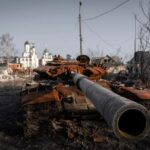


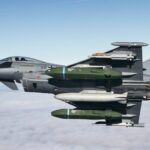


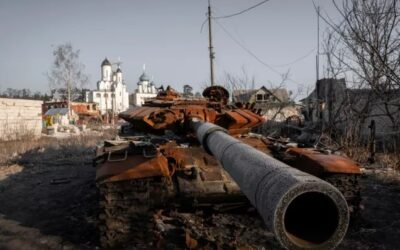
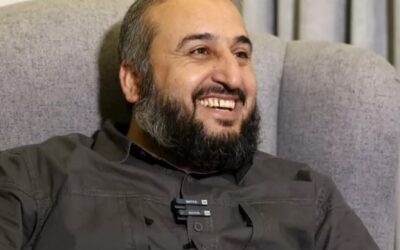
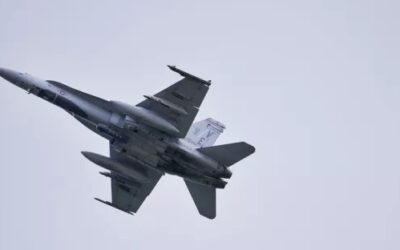

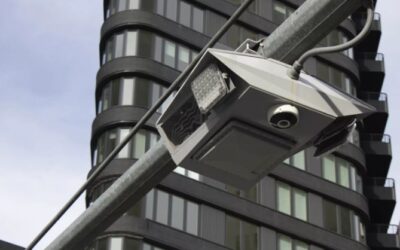
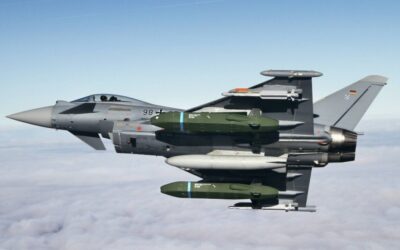
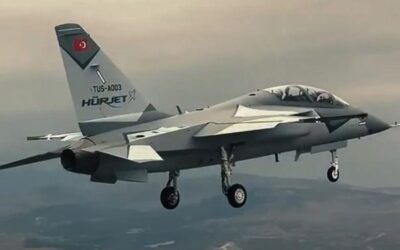
0 Comments